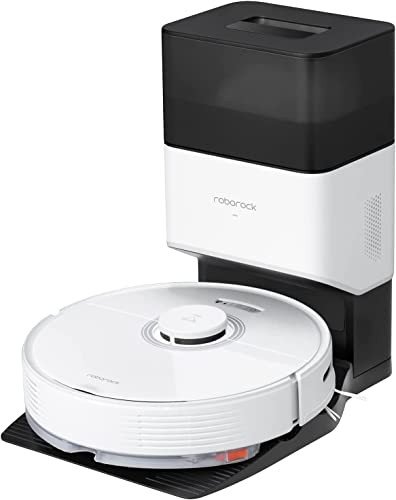Which Robot Vacuum Cleaner Should You Choose? A Comprehensive Guide
In today's hectic world, convenience and performance are important, and robotic vacuum cleaners have actually become a popular solution for keeping homes tidy without the hassle of manual vacuuming. With a plethora of designs offered, choosing the ideal robot vacuum can be frustrating. This short article aims to supply detailed insights into what to think about when choosing a robot vacuum, its features, and some frequently asked concerns.
Secret Features to Consider
When examining different robot vacuum cleaners, numerous essential features can help in making an informed decision. Below are some important aspects to consider:
1. Suction Power
- The suction power is crucial for choosing up dirt and particles successfully. Search for models with adjustable suction settings for various floor types.
2. Navigation Technology
- Advanced models utilize laser mapping and electronic cameras, enabling them to browse efficiently around obstacles and map out spaces for targeted cleaning.
3. Battery Life
- Consider for how long the vacuum can operate on a single charge. A longer battery life ensures more substantial cleaning sessions before requiring to recharge.
4. Size and Design
- A compact style enables the robot to tidy under furnishings and in hard-to-reach locations. Check measurements to ensure it suits your home design.
5. Dustbin Capacity
- Larger dustbins require less regular emptying. Assess just how much particles the model can hold before requiring to be emptied.
6. Smart Features
- Connection choices, such as Wi-Fi and app control, permit for remote scheduling and tracking. Voice control abilities through assistants like Alexa or Google Assistant can also improve use.
7. Cost
- Robot vacuums range from economical to high-end designs, so consider your cleaning needs and budget when deciding.
8. Customer Reviews and Warranty
- Research user feedback to understand the strengths and weaknesses of each design. A strong service warranty can provide peace of mind about your purchase.
Contrasts of Popular Robot Vacuum Cleaners
To help in understanding the alternatives readily available, here are some popular robot vacuum and their functions in the kind of a comparison table:
| Model | Suction Power | Battery Life | Navigation Technology | Smart Features | Price Range |
|---|---|---|---|---|---|
| iRobot Roomba i7+ | High | Up to 75 min | Smart mapping | App control, voice control | ₤ 600 - ₤ 800 |
| Neato Botvac D7 | Medium | Approximately 120 minutes | Laser-guided | App control, No-Go Lines | ₤ 600 - ₤ 700 |
| Roborock S7 | Really High | Up to 180 min | LiDAR Navigation | App control, mop function | ₤ 500 - ₤ 650 |
| Eufy RoboVac 11S | Low | As much as 100 minutes | Random navigation | Remote control | ₤ 250 - ₤ 300 |
| Ecovacs Deebot Ozmo T8 | Medium | Approximately 180 minutes | Smart mapping | App control, voice control | ₤ 600 - ₤ 750 |
Cost ranges and functions undergo alter, so it's recommended to check the current specifications before buying.
Pros and Cons of Robot Vacuum Cleaners
Pros
- Time-Saving: Robot vacuum can automate daily cleaning tasks, freeing up time for other activities.
- Convenience: Many designs can be managed via apps, allowing users to schedule cleaning on-the-go.
- Consistency: Regular cleaning sessions can prevent the accumulation of dirt and allergens in a home.
- Availability: Robot vacuums can reach spaces that conventional designs typically can not, such as under furnishings.
Cons
- Limited Capacity: Most robot vacuums have a smaller dustbin compared to conventional vacuum cleaners, necessitating regular emptying.
- Rate: High-end models can be costly, and spending plan designs may do not have necessary features.
- Surface Limitations: Some robot vacuums might have a hard time with particular surfaces, such as high-pile carpets.
- Upkeep: Brushes and filters need regular cleaning and replacement to keep ideal performance.
Frequently Asked Questions (FAQs)
Q1: How do robot vacuum cleaners work?Robot vacuums are geared up with sensors and brushes that assist them navigate a room while gathering dirt and debris. Their intelligent mapping innovation allows them to produce a layout of the home, enabling effective cleaning patterns.
Q2: Can robot vacuums clean several surface areas?Yes, many robot vacuum cleaners are created to work on a variety of surfaces, consisting of hardwood, tile, and low to medium-pile carpets. Nevertheless, some may be less efficient on high-pile carpets.
Q3: How often should I run my robot vacuum?It's typically advised to run a robot vacuum at least once a week. However, automatic hoovers with family pets or large amounts of foot traffic may take advantage of everyday cleaning.
Q4: Are robot vacuums worth the financial investment?If time and benefit are high priorities, a robot vacuum can be a beneficial financial investment. It automates an essential chore, enabling homeowners to focus on other tasks.
Q5: How much sound do robot vacuum make?Most robot vacuums operate at a sound level comparable to standard vacuums but might vary by design. Research study user reviews for noise levels if this is an issue.
Selecting the ideal robot vacuum needs careful consideration of multiple elements, including suction power, navigation innovation, and unique features. By weighing advantages and disadvantages while comparing popular designs, customers can discover the very best fit for their cleaning requires. As robot vacuum innovation continues to evolve, their capabilities and price are likely to enhance, making them a valuable addition to the modern-day household.

